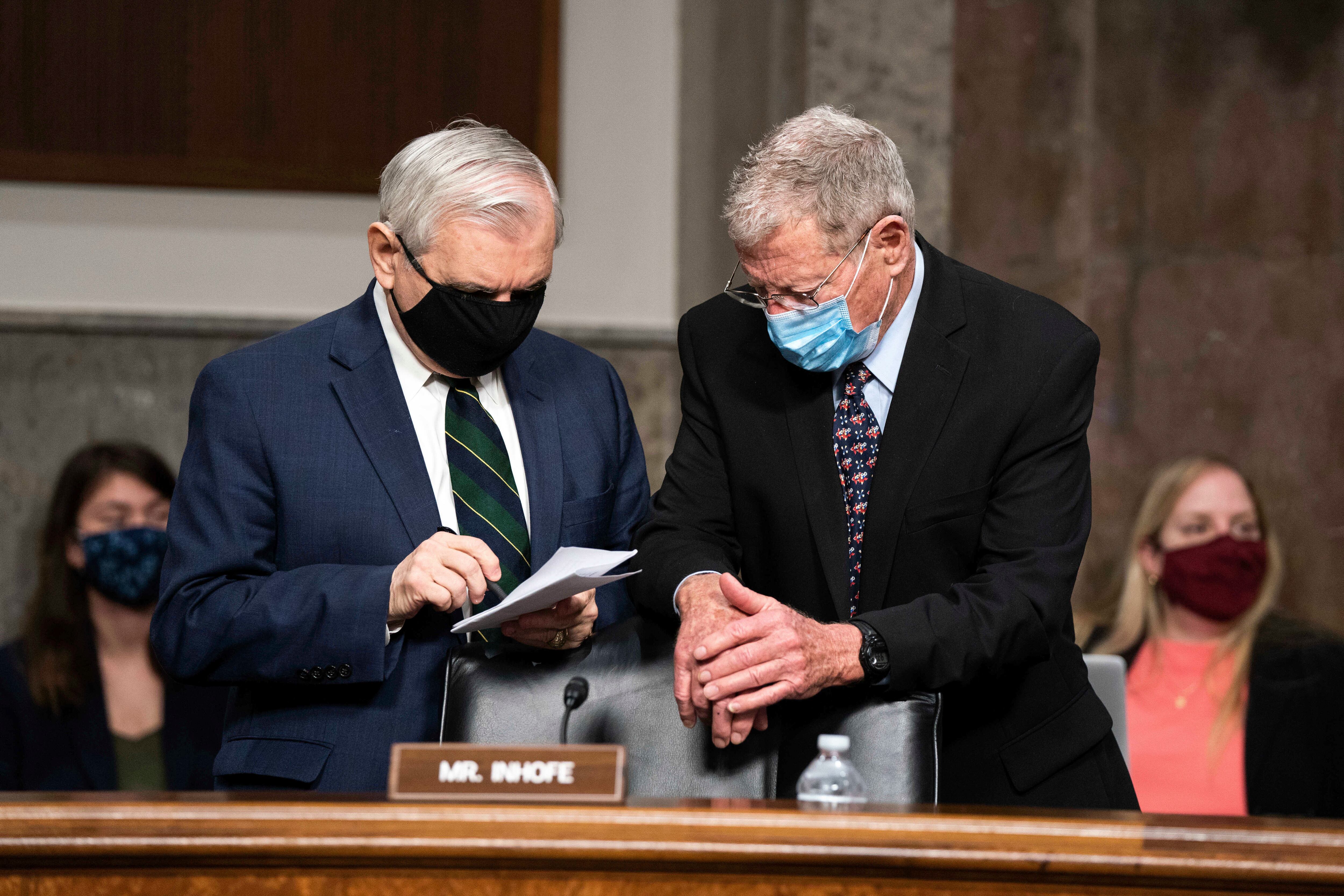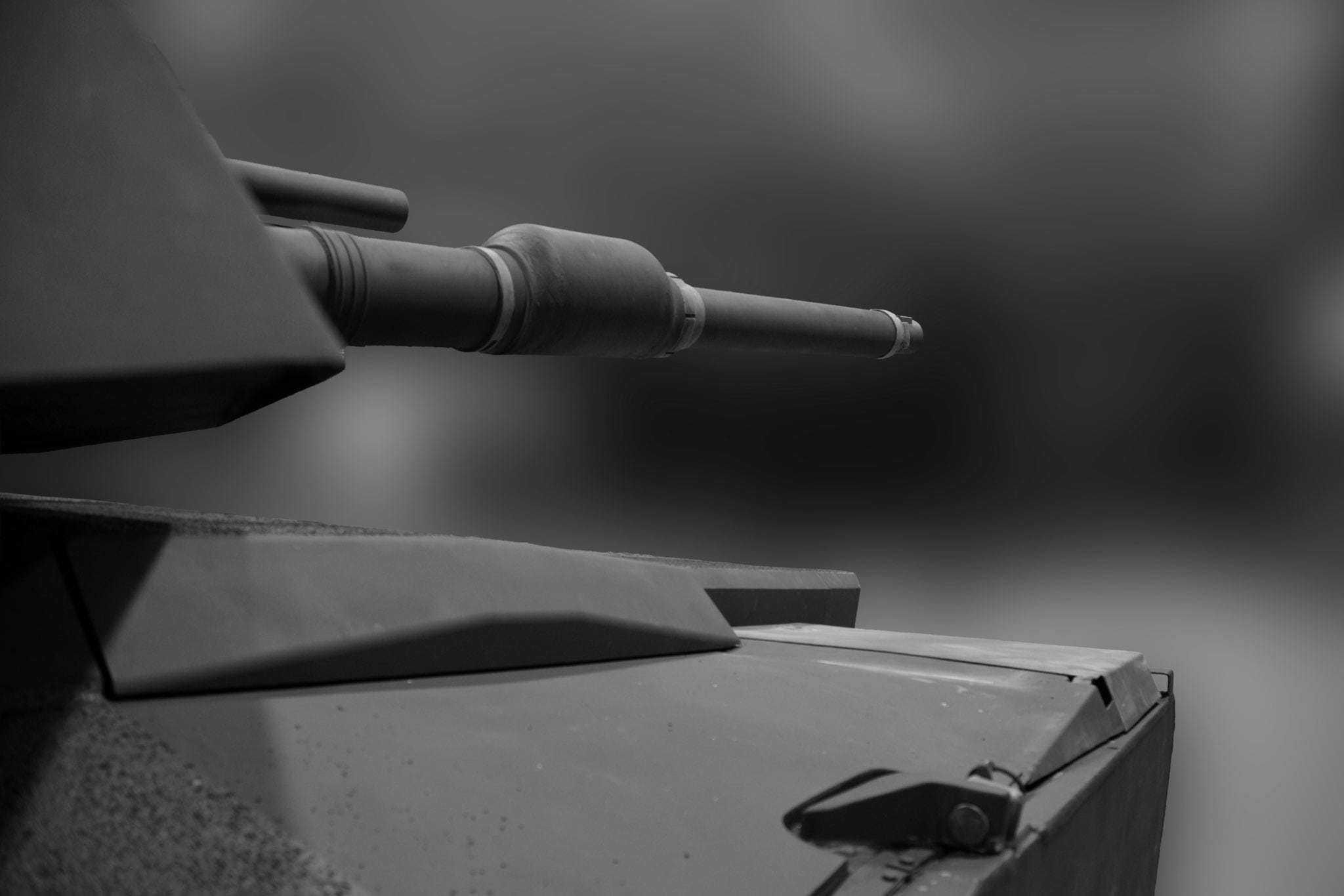WASHINGTON — As Russian forces launched an invasion of Ukraine, a bipartisan chorus of U.S. lawmakers broadly condemned the invasion and urged the Biden administration to further impose swift and painful sanctions on Moscow.
And some lawmakers called for the U.S. to bolster NATO allies, and provide Ukraine with additional assistance or defensive aid to help fend off the attack, which began early Thursday local time.
Members of Congress denounced Russian President Vladimir Putin’s assault and eruption of full-scale war on the European continent, and expressed support for the Ukrainian people.
“Vladimir Putin alone has chosen violence over reason,” Senate Armed Services Committee Chairman Jack Reed, D-R.I., said in a statement calling on Putin to withdraw. “His illegal invasion of Ukraine is abhorrent and driven by nothing more than personal ambition — not the welfare of his or the Ukrainian people. … Putin alone is responsible for the bloodshed he has caused.”
Sen. Jim Inhofe of Oklahoma, the ranking Republican on the Senate Armed Services Committee, also called Putin’s attack “unprovoked,” “shameful” and “shocking.”
But members of Congress are divided on the next steps the U.S. should take in response.
The most consistent calls were for tightening the screws on sanctions to increase the economic pressure on Russia, including by sanctioning its energy and financial sectors, oligarchs, and leadership.
“President [Joe] Biden has already imposed an initial tranche of sanctions, and it is now time for us to up the pain level for the Russian government,” Senate Intelligence Committee chairman Mark Warner, D-Va., said.
Sen. Tim Kaine, D-Va., also called for “additional crippling economic sanctions” and pointed to a bill he introduced in January that would sanction Russia’s banking sector and senior military and government officials in response to hostilities against Ukraine.
Sen. Rob Portman, R-Ohio, said the Biden administration must stand by its pledge to impose tough sanctions on Russia in the event of an attack.
“We can and we must cripple Russia’s military by starving it of financing,” Portman said. “We must impose export and import controls, especially of vital electronic goods like semiconductors. Doing so could restrict the tools Russia needs to manufacture and resupply its military.”
And Sen. Josh Hawley, R-Mo., said in a tweet the U.S. should “sanction Russia’s energy sector — the engine of its economy — to its knees and reopen American energy production full throttle.”
Prominent members of Congress expressed support for the Ukrainian people, with Kaine calling America’s commitment to the nation “absolute.”
But while several called for bolstering the defense of NATO allies, calls for more tangible support for Ukraine were less frequent.
Inhofe said the U.S. should respond “by providing additional defensive aid to continue to help our Ukrainian friends defend themselves.”
He added that the U.S. should continue providing Ukraine military support “under these new dire circumstances,” and pointed to the Ukraine Security Assistance Initiative. The 2022 National Defense Authorization Act extended assistance to Ukraine through 2022 under that program and increased funding from $250 million per year to $300 million. Of that, at least $75 million was to be spent on weapons and other forms of “lethal assistance,” according to a December statement from Portman and Sen. Jeanne Shaheen, D-N.H.
After Russia launched its attack, Portman also called for increasing military support to Ukraine — including anti-tank, anti-ship, anti-aircraft and other weapons — and other regional allies like Poland, Romania and Baltic countries. He said the sale of 250 M1A2 Abrams tanks to Poland and the decision to move U.S. forces in Europe forward “are positive first steps but more must be done,” including increasing the U.S. posture in the Baltics and Poland.
Shaheen stressed that the Biden administration should work quickly and in concert with U.S. allies on “crushing economic sanctions” and other responses to the Russian attack.
“Most critically, our response to Putin must be in lockstep with our allies to provide assistance to the Ukrainian people and shore up the defense of frontline NATO countries,” Shaheen said. “As our NATO allies rallied to our side in the aftermath of 9/11, so must we stand by them now in the face of Putin’s bloodthirsty actions.”
But while many lawmakers urged Putin to call off the assault and pull back, they acknowledged the chances of that happening are slim.
“Putin’s ambitions won’t stop with Ukraine — unless America and our allies stop Putin,” Inhofe said.
Stephen Losey is the air warfare reporter for Defense News. He previously covered leadership and personnel issues at Air Force Times, and the Pentagon, special operations and air warfare at Military.com. He has traveled to the Middle East to cover U.S. Air Force operations.





